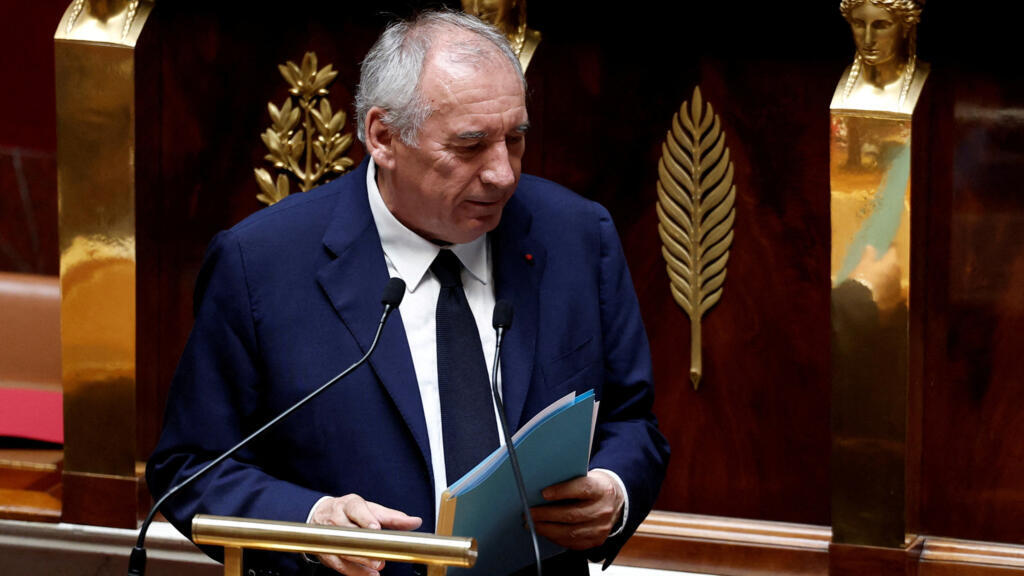
François Bayrou, the first prime minister in the history of modern France to be removed in a confidence vote rather than a motion of no confidence, is set to tender his resignation on Tuesday morning, according to a source cited by French news agency AFP
Bayrou, who has been in the job for just nine months, had blindsided even his allies by calling a confidence vote in his government to end a lengthy standoff over his austerity budget.
In the vote in France's parliament Monday evening, 364 deputies voted that they had no confidence in the government while just 194 gave it their confidence.
"In line with article 50 of the constitution, the prime minister must submit the resignation of his government," said speaker Yael Braun-Pivet in response to the result.
What's behind France's current political crisis?
Bayrou is the sixth Prime Minister under Macron since his 2017 election, but the fifth since 2022. Bayrou's ousting leaves the French head of state with a fresh domestic headache at a time when he is leading diplomatic efforts on the Ukraine war.
Defending his decision to call the high-risk confidence vote, Bayrou told the National Assembly: "The biggest risk was not to take one, to let things continue without anything changing... and have business as usual."
Describing the national debt as "life-threatening" for France, Bayrou said his government had put forward a plan so that the country could "in a few years' time escape the inexorable tide of debt that is submerging it."
He added: "You have the power to overthrow the government," but not "to erase reality," Bayrou told MPs in a doomed final bid to save his government before the vote.
Unpopular president
Macron now faces one of the most critical decisions of his presidency: appoint a seventh Prime Minister to try to broker a compromise, or call snap elections in a bid to secure a more accommodating parliament.
There is no guarantee that an election would improve the fortunes of Macron's centre-right bloc in the Assembly.
Although the Socialist Party (PS) has expressed readiness to lead a new government, it is far from clear whether such an administration could survive.
Senior right-wing cabinet ministers, such as Justice Minister Gérald Darmanin, are trusted by Macron but risk being voted out by the left.
According to a poll by Odoxa-Backbone for Le Figaro, 64 per cent of French people want Macron to resign rather than appoint a new Prime Minister—a move he has ruled out.
He is barred from standing for a third term in 2027.
Around 77 per cent of people disapprove of his performance, Macron's worst-ever rating, according to an Ifop poll for the Ouest-France daily.
Le Pen rising
Alongside political upheaval, France is also facing social tensions.
A left-wing collective named "Block Everything" is calling for a day of action on Wednesday, while trade unions have urged workers to strike on 18 September.
The 2027 presidential election remains wide open, with analysts predicting that the French far right will have its strongest-ever chance of winning.
Three-time National Rally (RN) presidential candidate Marine Le Pen suffered a setback in March when a French court convicted her and other party officials over an EU parliament fake jobs scandal.
Le Pen was sentenced to four years' imprisonment, two of which were suspended, and fined €100,000. The ruling also banned her from standing for office for five years, which would prevent her from contesting the 2027 election unless overturned on appeal.
However, a Paris court announced on Monday that her appeal would be heard from 13 January to 12 February 2026, well before the election, potentially reviving her presidential ambitions.
Cheered by her MPs, Le Pen urged Macron to call snap legislative elections, describing the polls as "not an option but an obligation" and Bayrou's administration as a "phantom government."
Meanwhile, left-wing France Unbowed leader Jean-Luc Mélenchon, shortly after the announcement of the vote result, called on French President Emmanuel Macron to "leave."
The Socialists’ parliamentary leader, Boris Vallaud, said in his first reaction that his group wanted to use the debate to "remind everyone that, contrary to what the prime minister said, there is another path," arguing that the left should be tasked with forming the next government.
He added that Macron needs to confront the reality that he lost the election last year, and that there is a "considerable" demand for change.
"If he loves this country, if he cares about the interests of the French, if he doesn’t want to leave the only alternative to the far-right, he will do it," he said.
Several other MPs highlighted the need for a swift response, as the "Block Everything" protests are set to begin on 10 September, followed by trade union protests on 18 September.
Will France’s ‘block everything’ movement jump from social media to the streets?
On Friday, the decision by the Fitch rating agency could also downgrade France's debt rating.
According to a poll by Odoxa-Backbone for Le Figaro newspaper, 64 percent of the French want Macron to resign rather than name a new prime minister, a move he has ruled out.
(with newswires)







